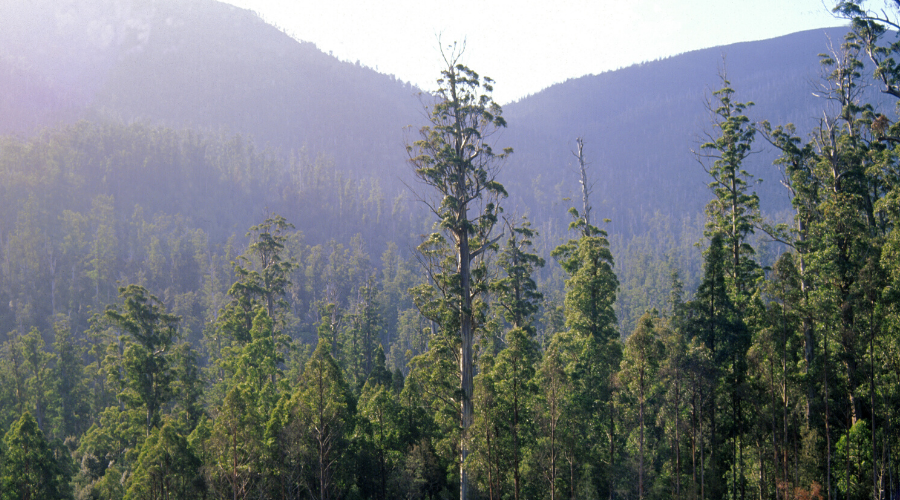Media Releases - 08 April 2020
Bunnings says “No Thanks” to wood from Tasmania’s ‘Future Potential Production Forest’
- Strong signal that retailers do not want controversial wood—especially wood from forests that the public already paid to protect
- Market rejection strengthens case for Tasmania’s unprofitable native forest logging industry to transition to plantations
- Markets increasingly preference Forest Stewardship Council (FSC)-certified wood and paper

As the Tasmanian Gutwein Liberal Government moves to re-allow logging in high conservation value forests, important markets reject wood from forests and logging marred by conflict.
Bunnings Warehouse, Australia’s largest home improvement retailer, has made clear that it will not accept wood from Tasmania’s ‘Future Potential Production Forests’.
In a letter to the Wilderness Society, dated 29 October 2019, Bunnings confirmed:
“Bunnings will neither source nor sell wood from the Future Potential Production Forests in Tasmania. Bunnings has also sought confirmation from its Tasmanian suppliers that they will not source from the previously protected areas.”*
Tasmania’s so-called ‘Future Potential Production Forests’ were originally informally protected as Future Reserve Land through the Tasmanian Forest Agreement.
“The Gutwein Liberal Government has said that ‘where industry can demonstrate a need for the wood’ the government will consider logging these forests. Markets are already rejecting this wood, which indicates a lack of need to destroy these high environmental value forests,” said Tom Allen for the Wilderness Society Tasmania.
“Regrettably, the Liberals’ policy puts a cloud over Tasmania’s entire wood and fibre industry, by considering re-commencing logging in forests that ought to remain protected.
“Certainty for forests, industry and markets can come through credentialled certification by the Forest Stewardship Council and a transition to plantations. This is where the Gutwein government should be focussing its efforts, not on winding back protections and attempting to force controversial wood into the market.”
“Markets, retailers and consumers don’t want wood that’s unethical. This means wood tainted by conflict, lacking social licence and environmentally destructive, all of which this wood from Tasmania's native forests would be.
“It’s beyond cynical that the logging industry would accept over $420 million in publicly funded exit package through the Tasmanian Forest Agreement in exchange for agreeing to protect and not log these areas but then, having taken the money, say it intends to log these forests anyway, enthusiastically helped all the way by the Tasmanian Liberals. What a scam.
“Bunnings is to be congratulated for clearly excluding Tasmania’s high-risk, commercially toxic wood from its supply chains.
“Victoria has set a 2030 deadline for its logging industry to transition out of native -forests. Tasmania’s forestry industry should be on the same trajectory because plantations are where the future investment, job and resource security and better environmental outcomes lie,” said Mr Allen.
Bunnings also has clear preference for wood that is certified by the Forest Stewardship Council (FSC) from December 2020. Sustainable Timbers Tasmania, like its Victorian counterpart VicForests, is still without the credentialled Forest Stewardship Council (FSC) standards or certifications.
For comment, contact Tom Allen on 0434 614 323
*A copy is available on request.